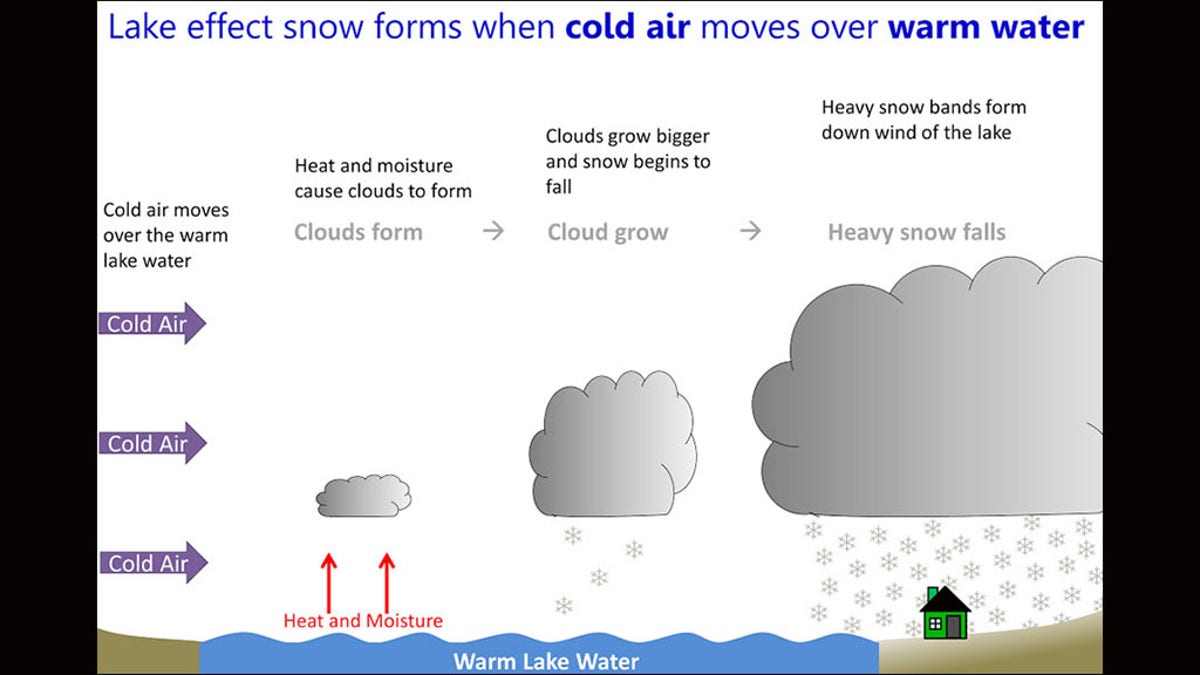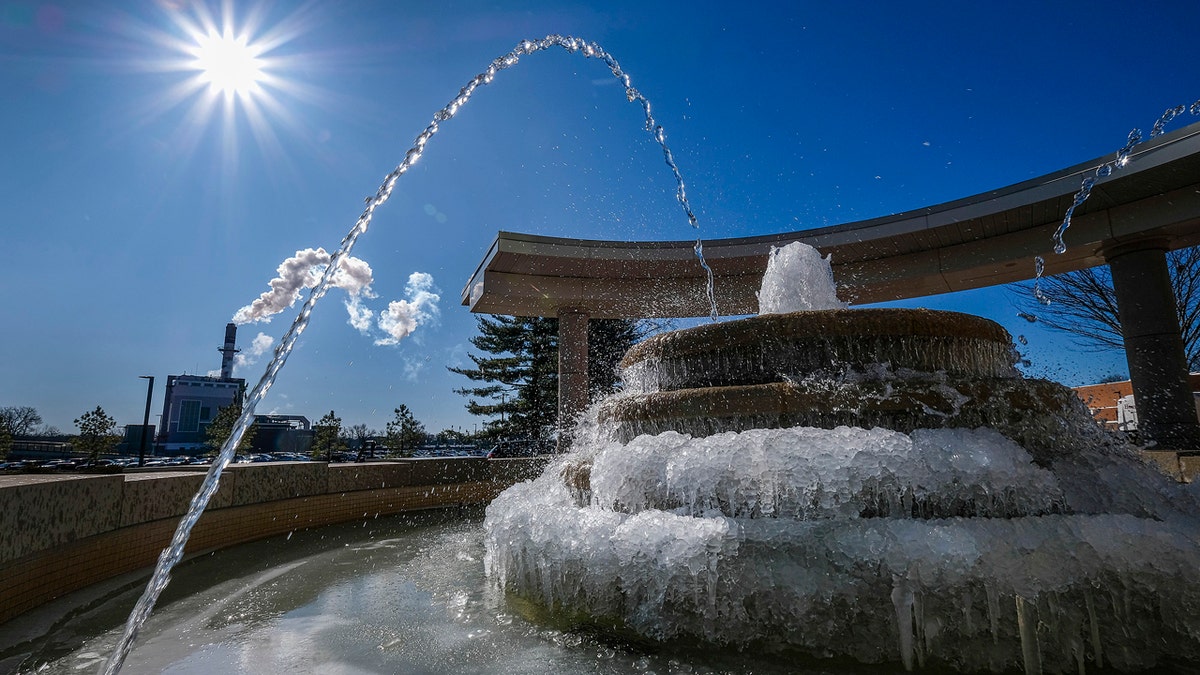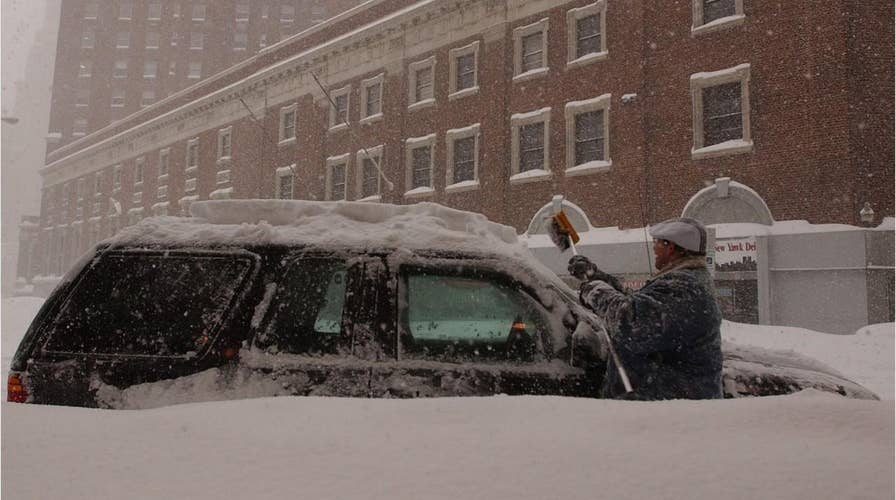Lake effect snow: Here's how it impacts the Great Lakes
When cold winds blow across the Great Lakes, residents are often subject to the wintry form of weather known as lake effect snow. Find out what it is and how it happens.
Goodness gracious, great balls of ice!
A bitter blast of Arctic air that brought dangerous wind chills across the Midwest last week also helped create the conditions for a rare phenomenon known as "ice balls" on a Lake Michigan beach.
The National Weather Service in Grand Rapids said Friday that it "took a while" but the conditions needed to form the balls finally got just right.
"These can usually be seen as early as late December and early January when temperatures fall into the teens and single digits," the Weather Service said.
Officials from the Michigan Department of Natural Resources shared photos of ice balls washing up on a beach at Holland State Park, about 30 miles west of Grand Rapids.

Thousands of ice balls formed and washed along the shore of Lake Michigan on Friday. (Holland State Park/Michigan Department of Natural Resources)
"It’s cold as balls out here!" park staff posted on Facebook. "Seriously, if you’re coming out to see the ice balls, please dress warm and be careful of snow covered debris."
The frigid attraction varied in size from softballs to yoga balls, DNR supervisor Sean Mulligan told the Detroit Free Press.

The ice balls spotted Friday along Lake Michigan varied in size. (Holland State Park/Michigan Department of Natural Resources)
"We went down to the beach to check on things and we saw these large ice balls," he told the paper. "I had heard of them before, but I hadn't ever seen them."
Mulligan estimated Friday that thousands of the balls had rolled up on the lakeshore.
BLIZZARD CONDITIONS IN MIDWEST, WINTER WEATHER ALERTS FROM OKLAHOMA TO MAINE AHEAD OF ARCTIC BLAST
According to the Weather Service, ice balls form when temperatures are just below freezing along shallow beaches. A layer of floating slush is sculpted by waves into spheres.

Large ice balls can be seen in the water offshore at Holland State Park in Michigan on Friday. (Holland State Park/Michigan Department of Natural Resources)
"These balls of ice then wash up on the beach by the thousands and freeze solid," the Weather Service said.
CLICK HERE FOR MORE WEATHER COVERAGE FROM FOX NEWS
According to the National Severe Storms Laboratory, the "lake effect" phenomenon can happen when cold air moves over a lake's warmer water and heavy snow falls on the shore.

A graphic depicting how lake effect snow forms. (National Weather Sevice)
"As a cold, dry air mass moves over the Great Lakes region the air picks up lots of moisture from the Great Lakes," according to the NSSL. "This air, now full of water, dumps the water as snow in areas generally to the south and east of the lakes."
Between late fall and into winter, lake effect snow occurs in the Great Lakes region when frigid air, often from Canada, moves in.
The dangerously cold air mass that caused the ice balls to form Friday was expected to give way to more moderate temperatures over the weekend in the Midwest. The cold blast caused schools to be closed and had a deadly impact on the region.

Cold temperatures turned the fountain in front of the Southern Illinois University, Student Services Building into a partial ice sculpture, Friday morning, Feb. 14, 2020, in Carbondale, Ill. (Byron Hetzler/The Southern Illinoisan via AP)
The Milwaukee County medical examiner's office was investigating the death of a 73-year-old woman who was found in her unheated Milwaukee home.
The woman's body temperature had dropped to less than 40 degrees. The electricity was working, but the heat was either turned off or malfunctioning, according to the medical examiner's office. An autopsy was scheduled for Monday.
CLICK HERE FOR THE FOX NEWS APP
In Omaha, Nebraska, the death of an 80-year-old man was being investigated as possibly related to the cold. Police found Robert Freymuller's body on Thursday near the assisted-living center where he lived. Police said he was not dressed appropriately for temperatures that plunged to minus-26 degrees with the wind chill.
The Associated Press contributed to this report.









































